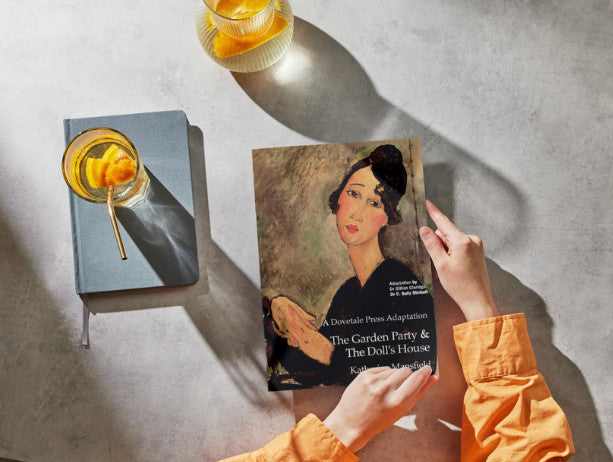
Dovetale Press carefully constructs classic books adapted for the reader living with dementia, including Alzheimer's.
Our adapted books are enriching, backed by research and crafted to amplify the joy of reading for people living with dementia (e.g., Alzheimer's, Lewy Body, Vascular or Frontotemporal), Parkinson's or stroke. Browse our bookstore to find the right novel that enhances the quality of life for readers with dementia at home, at the library or in residential care.
Why choose Dovetale Press books?
-

Adapted literature that is fit-for-purpose
Founded by Dr Gillian Claridge, an applied linguist, and Dr B. Sally Rimkeit, a psychogeriatrician in 2014. Dovetale Press publishes versions of classics, proven to engage readers. Our books include beautiful illustrations - adding vibrancy and joy to the readers' experience.
-

An engaging read backed by research
- Shorter text with a clear plot, retaining the authors' voice
- Large font and white space for ease of readability
- Easy to follow; a double-sided page reads as one story
- 'Cast lists' are provided and referents are clear
- Books are lighter than usual novels and easy to hold.





